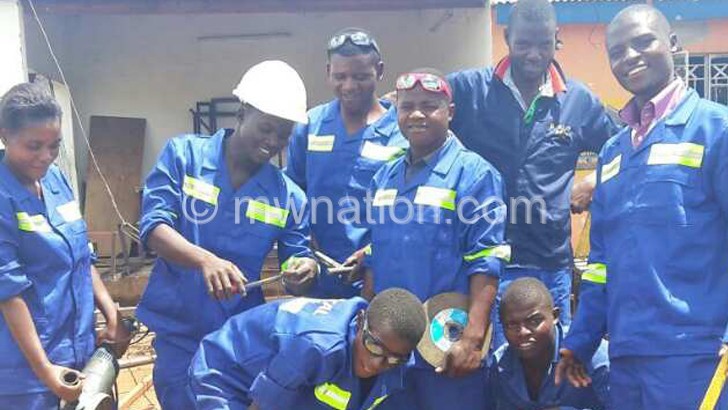Houseboy makes millions
In his rags-to-riches life story, emerging millionaire Ernest Kabichi is an undying dreamer. He is determined and benevolent too, Malawi News Agency reporter GLADYS KAMAKANDA writes.
In 2005, a 21-year-old quit a two-year welding and machinery course at Lilongwe Technical College.
Like many youthful Malawians in poverty, Ernest Kabichi dropped out to search for a job-anything that could bring him money.
The job seeker would soon bump into a friend, a contractor who was constructing a fence alongside Licon Bally, a shareholder at Nico Insurance Company.
“My friend employed me as a supervisor, but Bally asked me to become his houseboy. I could not refuse given my financial status,” he recalls.

Having worked for almost three months without pay, the household worker decided to resign.
He remembers his boss reluctantly letting him go.
“He gave me a T-shirt branded Stanbic and a hat wrapped in a plastic bag. Then he handed me K150 for transport from the opulent residence in Area 9 to his shack in Area 23,” he says.
Kabichi might not have been happy with what he got for all the gardening and domestic chores he had to do.
One day, his friend suddenly fell sick and he opened the bag in search of clean clothes ready to escort the patient to a clinic.
“To my surprise, I found an envelope wrapped in the T-shirt my ex-boss had given me. In there was $4 000, an equivalent of K540 000. The sum was huge, quite incredible. With it I bought machines and materials to start my own welding business,” he explains.
Together with his brother, they bought a welding machine, compressor and a grinder from South Africa. He recalls investing part of the remainder in a grocery shop.
He was running the businesses in Lilongwe while acquiring with entrepreneurship and marketing insights by reading motivational books.
Beside welding and fabrication, Kabichi, who comes from Chief Nyambi in Machinga, has risen to become a contractor with multi-million Kwacha contracts.
“It’s all by God’s grace,” he says.
Among other things, his works have caught an eye of Jan-Jaap Jakobus Sonke, a Blantyre-based architect and businessperson who was then supervising the construction of two secondary schools at Namwera under Cowbell Company.
“Sonke invited me to his house and gave me drawings of doors and window frames. We did the works and he was impressed with the end product. We signed a contract worth K997, 000,” explains Kabichi.
Kabichi attributes his success to hard work.
His entrepreneurship skills impressed US Ambassador Virginia Palmer who is currently helping him source funds to expand the company and enhance its activities.
“In 2016, some houses and two primary schools in Machinga were destroyed by hailstorms. I voluntarily helped reconstruct eight households and the schools, spending over K400 000. The beneficiaries wrote letters of appreciation through the district commissioner [DC],” he says.
When Palmer visited the DC’s office, she was admittedly amazed by the pictures of the buildings Kabichi had maintained.
“She requested me to meet her. During the meeting, she asked me to make 30 desks to be donated to a certain school in Machinga.”
The US envoy would later visit Kabichi’s workshop where she interacted with employees and interns.
She asked Kabichi to write a proposal for money to act as starter-packs for interns who had successfully completed their attachments to start their own businesses.
The request for funding was put on hold because it collided with presidential elections in the US.
But the US government offered him a K288 million project to make 9 000 school desks.
So far, he has cashed out K14.5 million for the first phase.
With this sum, he is buying materials for the desks.
The Fast Metal Welders Company owner is giving back to his community by paying school fees for some needy students at the Polytechnic, Mzuzu Technical College and Machinga Teachers Training College.
He has since opened a skills training centre which has trained 36 young Malawians in welding and fabrication.
“I have so far trained 12 girls and 24 boys. Most of them were poor like I was when I dropped out at the technical college, but they are doing well,” he explains.
He challenges the youth to acquire skills to seriously engage in entrepreneurship.
He is convinced that the country would eliminate massive youth unemployment by making the majority of young Malawians realise the importance of technical skills and entrepreneurship.
“With adequate investment in technical colleges, a skilled labour force and entrepreneurship, poverty and under-development could be history,” he explains.
The man who could not afford decent instruction in his field now dreams to own a private technical college.
He employs nine permanent workers and seven trainees. n





